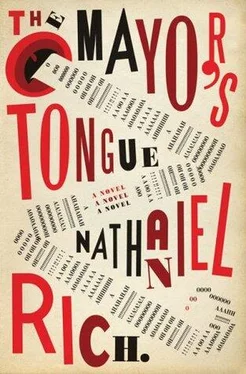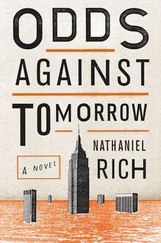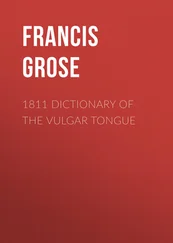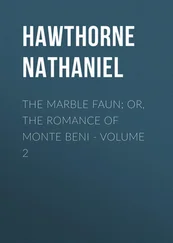"You like Eakins, Mr. Chisholm?"
"Like? Like? Why, LOOK," said Chisholm, with a triumphant slap. He swept his arm around wildly to indicate the entire room. Eugene, his eyes finally adjusted to the light, realized that every shelf was filled with books by Constance Eakins. Chisholm hadn't only collected the novels, essay collections, poetry collections, plays, and memoirs, but he also had anthologies, books of photographs taken by Eakins and books of photographs taken of Eakins, artworks inspired by his writing, scholarly studies, histories in which he was mentioned, and old literary magazines containing his short stories. A whole shelf was devoted to the Jaymes Silk detective novels he wrote under a pseudonym; another shelf included several editions of a Cajun cookbook written by his aunt, Jinnie Eakins, and even a slim volume of topographical surveys of the swamps of southern Louisiana, collected by Duane R. S. Eakins, Constance's cartographer nephew. Framed photographs among the shelves showed Eakins in various poses, at different stages of his life. In one, he was thrusting a spear through a cheetah's forehead; in another, he was wearing only a towel across his hips, lying in a yacht beside a topless woman who, if Eugene wasn't mistaken, was Rita Hayworth.
"Let me explain," said Chisholm. "I am a biographer. Eakins is my closest friend in the WORLD and I am writing his biography. I have been put off by endless delays and problems. My health — that's one. Public skepticism about Eakins's survival— that's two."
"You seem like you're in pretty good health."
"That's exactly wrong. I'm ill beyond belief. Just this morning I spent two hundred minutes in the loo, on the growler. I call that ILL. Where am I?
"Ah. Space difficulties, that's three. You see, I need an office. I'm moving, to 190th Street and Riverside. I'll work there until I finish my project. I need someone to move the books and the desk. I have only my daughter. She helps me greatly with my work and she is able-bodied, but not physically robust. And I'm not in book-lifting condition, alas. So I asked you. That is, my daughter called your company, because I'm terrible with the phones and cannot manage. I have a HEARING problem. I can HEAR you only because I am wearing these absolutely miraculous hearing aids."
Chisholm pushed his fingers deep into his ears and removed two beige plastic devices. They had been custom-designed to fit into his ear canal, which must have been unusually narrow and spiraled: the hearing aids looked something like corkscrews.
"I understand now," said Eugene, trying to placate the old man. He feared that Chisholm was working himself up into a hysterical fit.
"WHAT?" Slap.
"I understand now," said Eugene, louder.
"WHAT! WHAT! Ah. Please hold on." He remembered his hearing aids, which he now screwed back into his head. "There. So now you understand."
Alvaro and Eugene spent all morning stacking the books into boxes and moving them, along with the furniture, to a small studio apartment by the river in Washington Heights, not far from Aaronsen and Son. The room, on the top floor of a nondescript prewar elevator building, had a single window that gave onto views of the George Washington Bridge. A large lacquered mahogany desk filled nearly half the apartment, so they had to stack the boxes of Eakinsiana on top of it and even in the bathroom, on the toilet and in the shower. They couldn't wash their dusty hands or splash water on their faces because they had plugged the sink and filled it with commemorative coins issued by the Italian government, bearing Eakins's profile.
There was no way they'd finish the job before the evening, so Chisholm said they could go home and come back the next day.
"I can stay longer," said Eugene. Alvaro glared at him. "I don't mind being around all these books — I'm happy to work late and start shelving them."
"Very good," said Chisholm. "I'll pay overtime."
Alvaro lingered a moment after Chisholm left.
"Are you OK? Why do you want to stay late?"
"What? I'm fine."
Alvaro cocked his head to get a better look at his friend, but when he seemed satisfied that Eugene was determined to stay, he bounded out of the apartment. Eugene was alone. There was once a time when this would have scared him, but now he was surprised to realize that what he had been craving was not the time to study Chisholm's Eakins collection, but the isolation it would bring.
He began by organizing Eakins's books in chronological order, creating separate sections for the biographies, criticism, and miscellanea. He paused often to read certain passages, and dwelled particularly on rare material that he had never encountered in all his thesis research. He did not know, for instance, that Eakins had dedicated several volumes, erudite though drily academic, to a critical study of Norse mythology: The Legend of Idavoll. But Eugene was most excited to find an obscure collection of short stories, published by a small Triestine publisher called Casa Esperanta. The volume included an early story that he had never seen before, called "The Saddest Man." It was very late by this time, so Eugene decided to take a break and read.
The story begins with Lorenzo, the young man of the title, spotting a plain brown-haired girl sitting at a bus stop. She is wearing a misshapen gray dress that her mother, the wife of a farmer in the Dolomites, has sewn for her out of flax. Her braided hair bounces against her nape, and the neck of her dress falls off to reveal a scarlet bra strap. She's not gorgeous, but she has lively, emerald eyes and mischievous dimples that Eakins describes as "indicative of some vast undisclosed intelligence." Lorenzo watches her, waiting for a nod or a smile. In response she squeezes her face disapprovingly and concentrates on the ground in front of her. Lorenzo leans toward her to get her attention, smiles in mock defeat, and then leans in again. Her frown only deepens. The bus does not come. Soon another girl comes by, younger and urban, Aryan and haughty. Lorenzo's "cheeks puff out." He mumbles to himself and shakes his head in disbelief at her cold beauty. When the farm girl sees that Lorenzo has found a new quarry and forgotten about her, she grows anxious and even sneaks looks at Lorenzo and the Aryan.
The bus finally arrives, but it is packed and no one can get on. Finally it "exhales" several people, and the Aryan girl, who is closest to the door, slides aboard just before the door closes. Lorenzo gives chase, but it is too late. The Aryan girl waves at him behind the glass, laughing, and mouthing words that he cannot decipher. "I'll go with you anywhere!" shouts Lorenzo. "Open up!" He pounds the door and jogs beside the bus for a dozen feet before it pulls away. He skulks back to the bus stop, furious at himself for not speaking to the Aryan girl, but also secretly thrilled by the interaction. At that moment the plain farm girl, grinding her teeth, walks up beside him and introduces herself. Would you like to walk to the next stop? Eakins's description of her speech sticks with Eugene — she talks "in a laughing kind of voice."
While they walk, the girl can't help but notice that Lorenzo is still staring at the departed bus ahead of them as it disappears over a hill. She clenches her hand in frustration. Soon, however, Lorenzo touches her fist, and she opens her fingers into his.
Eugene put down the book and lay on the floor among the piles of Eakins memorabilia. His head rested on a history of American literature whose cover featured a small picture of Eakins, squeezed between portraits of Henry Adams and Mark Twain. A Life magazine from the autumn of 1971—the cover image showed Eakins during his failed congressional campaign, dressed as George Washington — was spread across Eugene's face, shielding him from the sunlight that had begun to slant through the apartment's single window. As the sounds of traffic rose from the highway, he absently pulled several paperbacks over his chest as if they might together form a blanket.
Читать дальше












